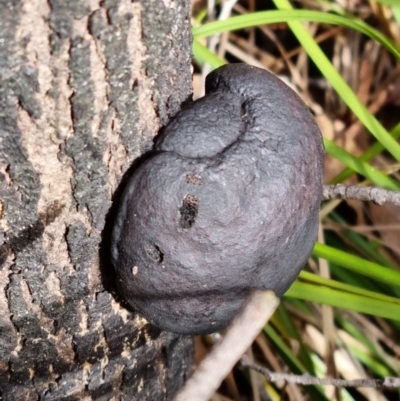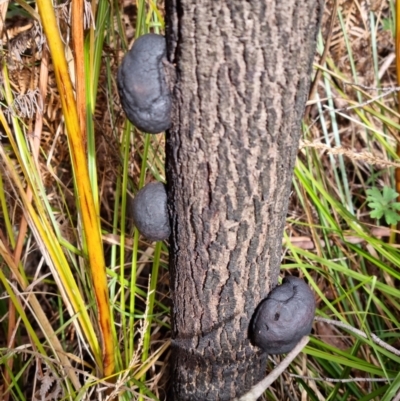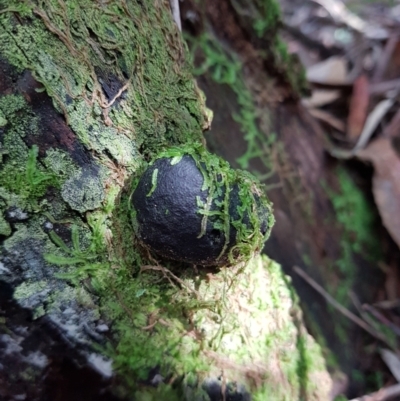Spherical or cobblestone-like or spotted/pimpled crust <perithecial> species
Moderators
The following moderators provide knowledge and expertise for Spherical or cobblestone-like or spotted/pimpled crust <perithecial> :
Heino1 | Csteele4 | Pam | Teresa | KenT | CanberraFungiGroup | JTran | MEJETEuge
Overview
The bulk of the fungi in this sub-group produce perithecia as fruit bodies. A perithecium is a roughly spherical chamber within which you find the spore producing organs and there is an apical hole (or ostiole) through which the spores escape from the perithecium. In many species you see the ostiole as a tiny, pimple-like protrusion (and sometimes you will need a handlens to see it clearly).
Perithecia are small, from under a millimetre to about 2 millimetres in diameter. Mostly they are black and hard (but brittle – apply enough pressure and you’ll shatter one), however, there are also soft or coloured perithecia.
They may appear sparsely over the wood, in gregarious colonies (but with the individual perithecia still clearly distinct) or in stromata. In a stroma the perithecia are embedded within a communal matrix. Stromata may be two dimensional (e.g. a crust or cushion on the wood) or three dimensional (e.g. a golfball-sized lump on the wood). In some stroma-forming species you find a pigmented layer making up the outer surface of the stroma.
1 species
-
Unknown (change?)
* designates formal legal status
- All invasiveness levels (change?)
Artificial intelligence
CarbonAI is not active.
Follow Spherical or cobblestone-like or spotted/pimpled crust <perithecial>
Receive alerts of new sightings
SubscribeShare field guide
Share link to Spherical or cobblestone-like or spotted/pimpled crust <perithecial> field guide



